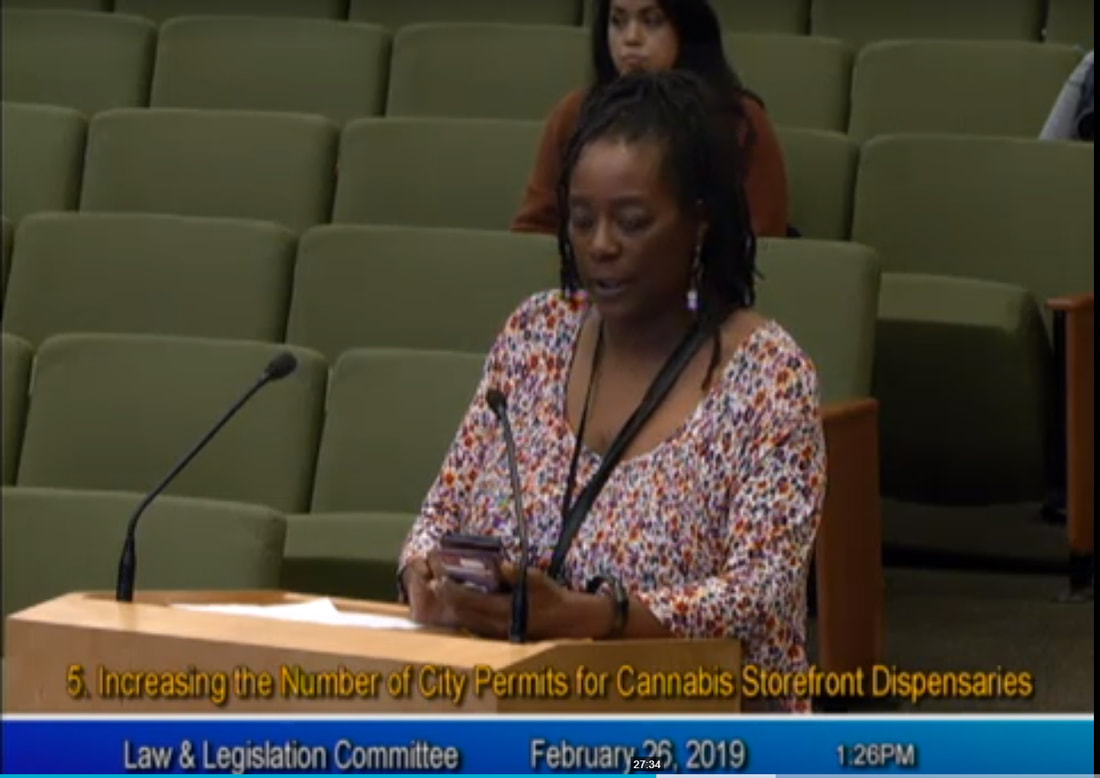SACRAMENTO DELAYS APPROVING BLACK OWNED MARIJUANA STORES
BY VALERIE WILLIAMS AND MALAKI SEKU AMEN
FEBRUARY 25, 2019
FEBRUARY 25, 2019
California Urban Partnership staff attended the City of Sacramento’s Law and Legislation Committee hearing on (DATE). In a non-vote discussion item, committee members talked about including Drug War impacted entrepreneurs among the current limit of 30 retail marijuana business license holders in the City. None of the current 30 weed stores are Black owned, as current license holders continue to strengthen their position in the market.
Committee members discussed a concern about oversaturation of marijuana storefront dispensaries, and decided that they would wait to “observe the market” until the end of 2019 before granting any retail licenses to CORE program (Cannabis Opportunity, Reinvestment and Equity) participants, with no guarantee. This decision runs counter to the Council’s previous position that the market should dictate how many dispensaries survive. While the Council has opened a major door with adoption of the CORE program policy, the discussion on retail licenses, along with a series of recent decisions and developments has once again placed equity applicants at a disadvantage in the market. The California Urban Partnership maintains the following position on dispensaries:
1.Expand dispensary licenses from the current cap of 30 to achieve the result of CORE eligible participants receiving half of all dispensary licenses (consistent with the policy goal).
2.Increase and allocate the pool of dispensary licenses and social enterprises exclusively for CORE eligible participants on a first ready, first awarded basis. We oppose a lottery system because the current dispensary owners did not have to enter into a lottery for their licenses.
3.Ensure dispensary (and all) licenses for CORE are non-transferable (for a certain period of time) so they are not abused and will have an impact on repairing the economic disparities created by the War on Drugs.
Justice delayed IS justice denied!
Committee members discussed a concern about oversaturation of marijuana storefront dispensaries, and decided that they would wait to “observe the market” until the end of 2019 before granting any retail licenses to CORE program (Cannabis Opportunity, Reinvestment and Equity) participants, with no guarantee. This decision runs counter to the Council’s previous position that the market should dictate how many dispensaries survive. While the Council has opened a major door with adoption of the CORE program policy, the discussion on retail licenses, along with a series of recent decisions and developments has once again placed equity applicants at a disadvantage in the market. The California Urban Partnership maintains the following position on dispensaries:
1.Expand dispensary licenses from the current cap of 30 to achieve the result of CORE eligible participants receiving half of all dispensary licenses (consistent with the policy goal).
2.Increase and allocate the pool of dispensary licenses and social enterprises exclusively for CORE eligible participants on a first ready, first awarded basis. We oppose a lottery system because the current dispensary owners did not have to enter into a lottery for their licenses.
3.Ensure dispensary (and all) licenses for CORE are non-transferable (for a certain period of time) so they are not abused and will have an impact on repairing the economic disparities created by the War on Drugs.
Justice delayed IS justice denied!


